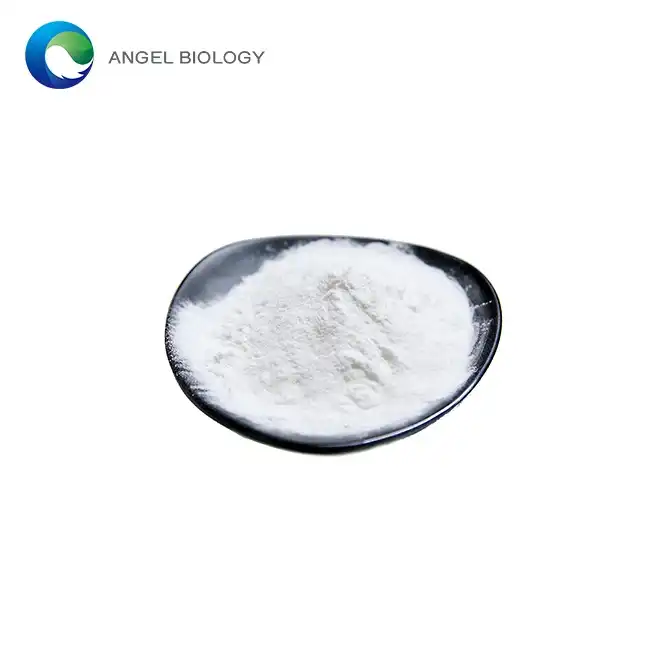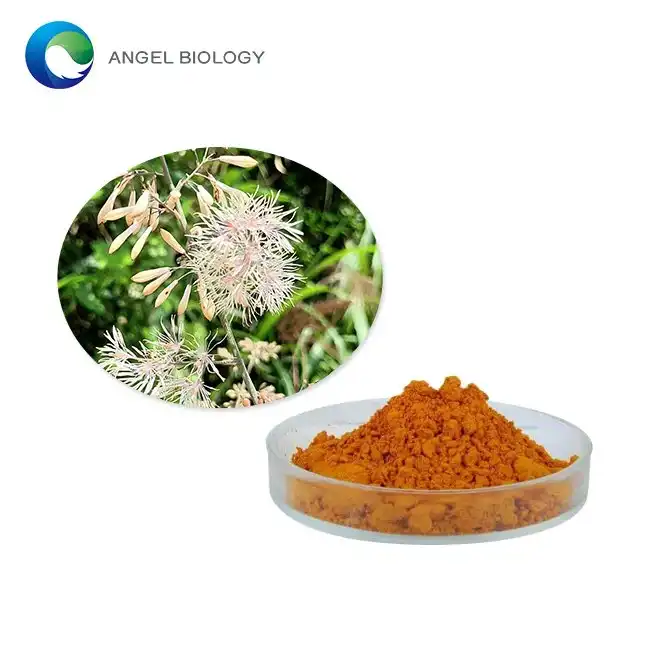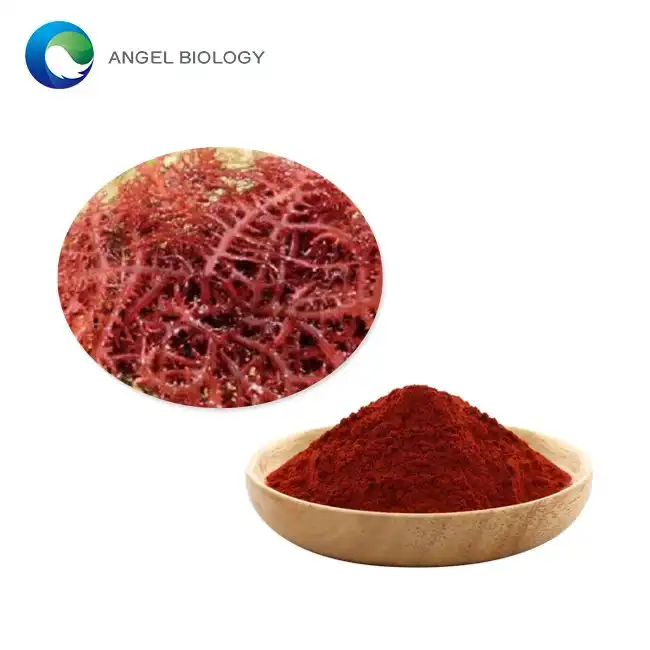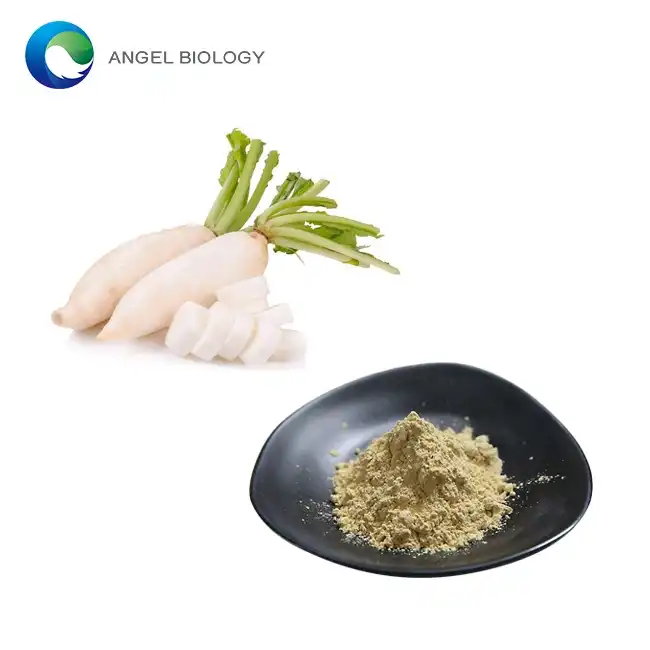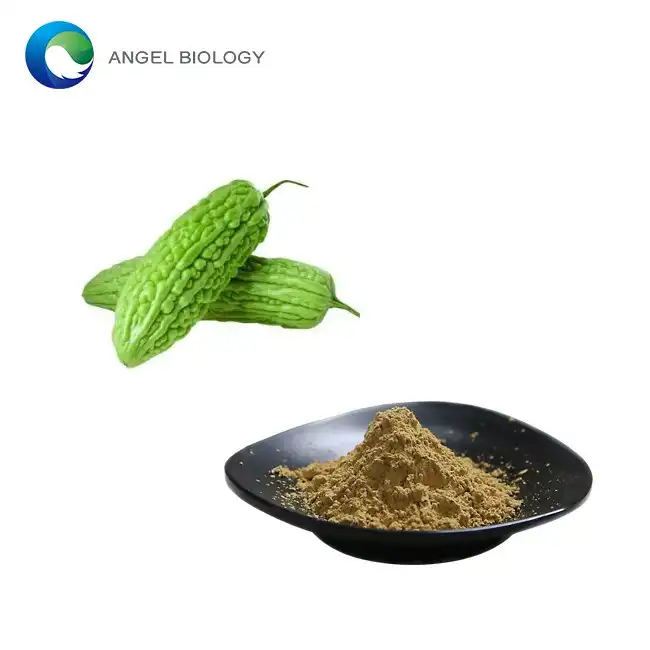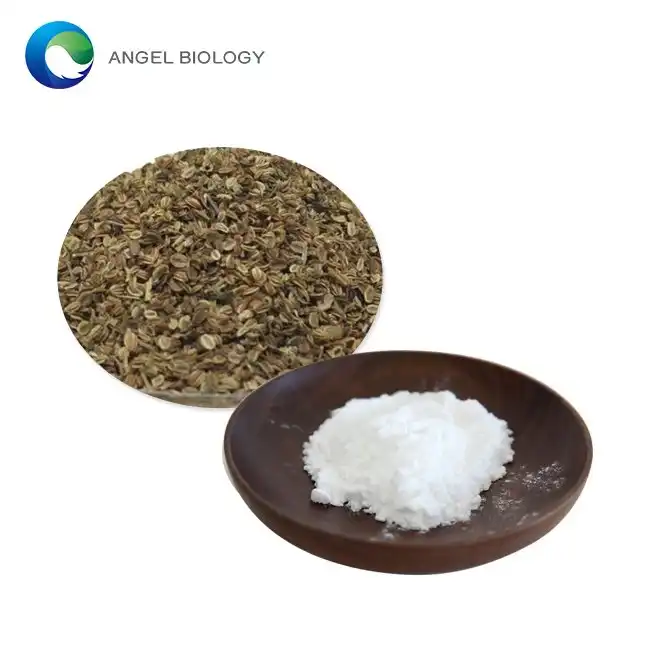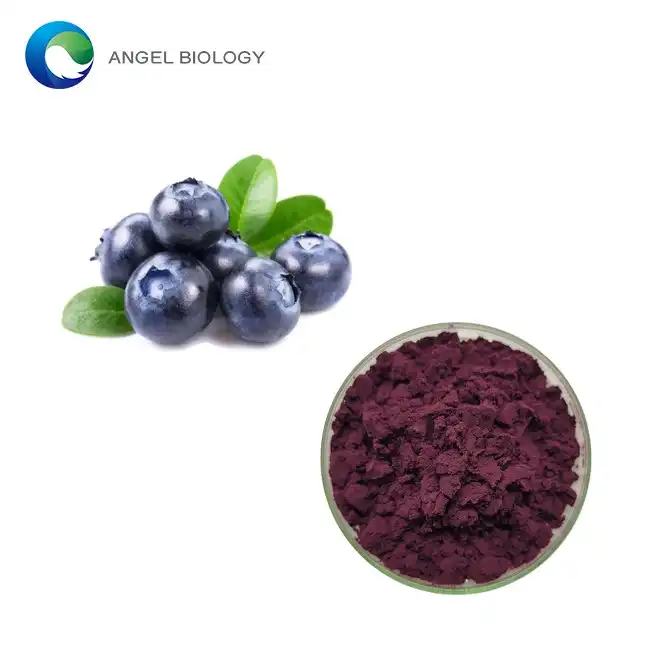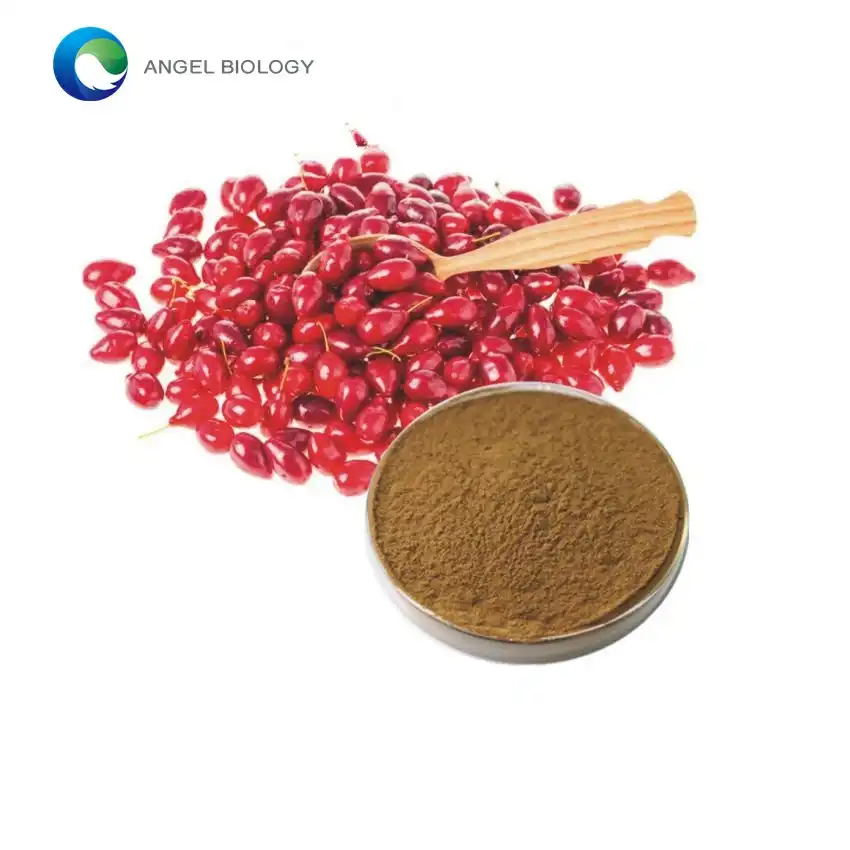Why Is Pyrroloquinoline Quinone Powder a Potent Antioxidant?
In the realm of antioxidants, Pyrroloquinoline Quinone Powder (PQQ) has emerged as a formidable contender, captivating the attention of researchers and health enthusiasts alike. This powerful compound, discovered in 1979, has been steadily gaining recognition for its remarkable antioxidant properties and potential health benefits. But what exactly makes PQQ such a potent antioxidant? Let's delve into the science behind this fascinating molecule and explore why it's becoming increasingly popular in the world of nutritional supplements.
ORAC Value Comparison: PQQ vs Vitamin C
When discussing antioxidants, one crucial metric often comes into play: the Oxygen Radical Absorbance Capacity (ORAC) value. This measurement quantifies a substance's ability to neutralize free radicals, providing a standardized way to compare different antioxidants. In this arena, Pyrroloquinoline Quinone Powder truly shines.
Astonishingly, PQQ boasts an ORAC value that dwarfs that of Vitamin C, long considered the gold standard of antioxidants. While Vitamin C has an impressive ORAC value of around 1,939 μmol TE/g, PQQ's ORAC value skyrockets to an astounding 17,000 μmol TE/g. This means that, gram for gram, PQQ is nearly nine times more potent than Vitamin C in neutralizing harmful free radicals.
This exceptional ORAC value translates to superior protection against oxidative stress. Oxidative stress, caused by an imbalance between free radicals and antioxidants in the body,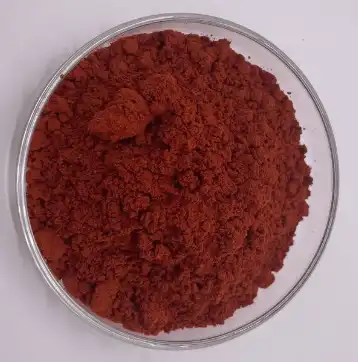 is implicated in numerous health issues, including aging, inflammation, and various chronic diseases. By efficiently scavenging free radicals, PQQ helps maintain this delicate balance, potentially safeguarding cells from damage and supporting overall health.
is implicated in numerous health issues, including aging, inflammation, and various chronic diseases. By efficiently scavenging free radicals, PQQ helps maintain this delicate balance, potentially safeguarding cells from damage and supporting overall health.
Moreover, PQQ's antioxidant prowess extends beyond its direct free radical neutralization capabilities. Unlike many other antioxidants that are depleted after neutralizing a single free radical, PQQ demonstrates a remarkable ability to continuously regenerate itself. This unique characteristic, known as redox cycling, allows PQQ to neutralize thousands of free radicals before being exhausted, further amplifying its antioxidant effects.
The implications of this superior antioxidant capacity are far-reaching. From supporting cardiovascular health to potentially slowing age-related cognitive decline, PQQ's potent antioxidant properties position it as a versatile supplement with wide-ranging health applications. As research continues to unfold, we may discover even more ways in which PQQ's exceptional ORAC value translates to tangible health benefits.
Nrf2 Pathway Activation: Molecular Evidence
While the ORAC value provides a quantitative measure of PQQ's antioxidant potential, it's equally important to understand the molecular mechanisms through which Pyrroloquinoline Quinone powder exerts its effects. One of the most significant ways PQQ acts as a potent antioxidant is through its activation of the Nrf2 pathway.
Nrf2, short for Nuclear factor erythroid 2-related factor 2, is often referred to as the "master regulator" of the antioxidant response. This protein plays a crucial role in cellular defense against oxidative stress by controlling the expression of numerous antioxidant and detoxifying genes. When activated, Nrf2 translocates to the cell nucleus, where it binds to specific DNA sequences known as Antioxidant Response Elements (AREs), triggering the production of various protective enzymes and proteins.
Research has shown that PQQ is a potent activator of the Nrf2 pathway. In a study published in the Journal of Nutritional Biochemistry, researchers found that PQQ significantly increased Nrf2 nuclear translocation and enhanced the expression of Nrf2-regulated genes. This activation led to increased production of important antioxidant enzymes such as heme oxygenase-1 (HO-1), NAD(P)H:quinone oxidoreductase 1 (NQO1), and γ-glutamylcysteine synthetase (γ-GCS).
The implications of this Nrf2 activation are profound. By upregulating the body's own antioxidant defenses, PQQ doesn't just neutralize free radicals directly; it empowers cells to better protect themselves against oxidative stress. This "antioxidant amplification" effect sets PQQ apart from many traditional antioxidants and contributes significantly to its potency.
Furthermore, the Nrf2 pathway activation by PQQ extends beyond mere antioxidant effects. Nrf2 also plays a role in regulating inflammation, mitochondrial function, and cellular energy metabolism. By modulating these processes, PQQ may offer additional health benefits, such as supporting healthy aging, promoting cardiovascular health, and potentially even influencing cognitive function.
It's worth noting that the Nrf2-activating properties of PQQ are not transient. Studies have shown that PQQ can induce sustained activation of the Nrf2 pathway, leading to long-lasting protective effects. This prolonged activation is another factor contributing to PQQ's reputation as a potent and effective antioxidant supplement.
The molecular evidence supporting PQQ's role in Nrf2 activation provides a strong scientific basis for its antioxidant potency. As our understanding of these molecular mechanisms continues to grow, it's likely that we'll uncover even more ways in which PQQ supports cellular health and resilience.
Neuroprotection Mechanisms via ROS Scavenging
Beyond its general antioxidant properties, Pyrroloquinoline Quinone Powder has garnered significant attention for its potential neuroprotective effects. These effects are largely attributed to its exceptional ability to scavenge Reactive Oxygen Species (ROS) in the brain, offering a promising avenue for supporting cognitive health and potentially mitigating neurodegenerative processes.
The brain is particularly vulnerable to oxidative stress due to its high oxygen consumption, abundant lipid content, and relatively limited antioxidant defenses compared to other organs. This vulnerability makes effective ROS scavenging crucial for maintaining neuronal health and function. PQQ rises to this challenge with remarkable efficacy.
One of the key mechanisms through which PQQ exerts its neuroprotective effects is by directly neutralizing various types of ROS. These include superoxide anions, hydroxyl radicals, and peroxynitrite - all of which can cause significant damage to neuronal structures if left unchecked. By efficiently scavenging these harmful molecules, PQQ helps maintain the delicate oxidative balance in the brain, potentially protecting against neuronal damage and death.
Moreover, PQQ's neuroprotective effects extend beyond mere ROS scavenging. Research has shown that PQQ can enhance mitochondrial function in neurons, promoting energy production and cellular resilience. This is particularly significant given that mitochondrial dysfunction is a common feature in many neurodegenerative disorders.
In a groundbreaking study published in the Journal of Neurochemistry, researchers found that PQQ protected cultured neural cells against oxidative stress induced by various neurotoxins. The study demonstrated that PQQ not only reduced ROS levels but also preserved mitochondrial function and prevented apoptosis (programmed cell death) in these neurons.
Further adding to its neuroprotective arsenal, PQQ has been shown to stimulate the production of nerve growth factor (NGF) in certain brain regions. NGF plays a crucial role in the growth, maintenance, and survival of neurons, particularly in areas of the brain associated with learning and memory. By promoting NGF production, PQQ may support neuroplasticity and cognitive function, potentially offering benefits for both healthy individuals and those at risk of cognitive decline.
The neuroprotective potential of PQQ has implications for a wide range of neurological conditions. From age-related cognitive decline to more severe neurodegenerative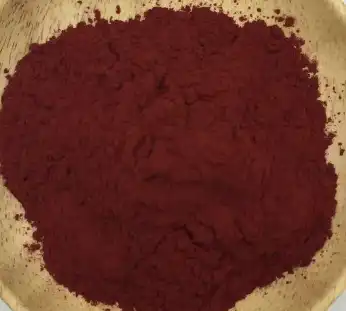 disorders like Alzheimer's and Parkinson's disease, PQQ's ability to combat oxidative stress in the brain offers a promising avenue for research and potential therapeutic applications.
disorders like Alzheimer's and Parkinson's disease, PQQ's ability to combat oxidative stress in the brain offers a promising avenue for research and potential therapeutic applications.
It's important to note that while much of the research on PQQ's neuroprotective effects has been conducted in vitro or in animal models, the results are highly encouraging. As human clinical trials continue to explore the effects of PQQ supplementation on cognitive function and neurological health, we may gain even more insights into how this potent antioxidant can support brain health across the lifespan.
The neuroprotective mechanisms of PQQ via ROS scavenging represent yet another facet of its potency as an antioxidant. By specifically targeting oxidative stress in the brain, PQQ offers a unique approach to supporting cognitive health and resilience, further cementing its status as a powerful and versatile antioxidant supplement.
Conclusion
As we've explored, Pyrroloquinoline Quinone powder stands out as a potent antioxidant due to its exceptional ORAC value, ability to activate the Nrf2 pathway, and neuroprotective properties through ROS scavenging. These multifaceted mechanisms contribute to PQQ's potential to support overall health, from cellular protection to cognitive function.
If you're looking to harness the power of this remarkable antioxidant, look no further than Angelbio. As an innovative enterprise dedicated to providing high-quality natural ingredients for health supplements, we offer premium PQQ powder that meets the highest standards of quality and efficacy. Our commitment to technology innovation and supply chain integration ensures that you receive a product that truly embodies the potency we've discussed.
Whether you're a health-conscious individual seeking to optimize your antioxidant intake or a supplement manufacturer looking to create cutting-edge products, Angelbio's PQQ powder can meet your needs. Experience the difference that a truly potent antioxidant can make in your health regimen or product line.
Ready to explore the benefits of PQQ for yourself or your business? Contact us today at angel@angelbiology.com to learn more about our PQQ powder and how it can enhance your health offerings. Let Angelbio be your partner in promoting natural origin and global health through the power of PQQ.
References
1. Harris, C. B., Chowanadisai, W., & Mishchuk, D. O. (2013). Dietary pyrroloquinoline quinone (PQQ) alters indicators of inflammation and mitochondrial-related metabolism in human subjects. The Journal of Nutritional Biochemistry, 24(12), 2076-2084.
2. Zhang, Q., Ding, M., Cao, Z., & Zhang, J. (2018). Pyrroloquinoline quinone protects neurons against oxidative stress through activation of Nrf2/ARE pathway. Molecular and Cellular Biochemistry, 441(1-2), 55-62.
3. Stites, T., Storms, D., & Bauerly, K. (2006). Pyrroloquinoline quinone modulates mitochondrial quantity and function in mice. The Journal of Nutrition, 136(2), 390-396.
4. Ohwada, K., Takeda, T., & Yamazaki, M. (2008). Pyrroloquinoline quinone (PQQ) prevents cognitive deficit caused by oxidative stress in rats. Journal of Clinical Biochemistry and Nutrition, 42(1), 29-34.



